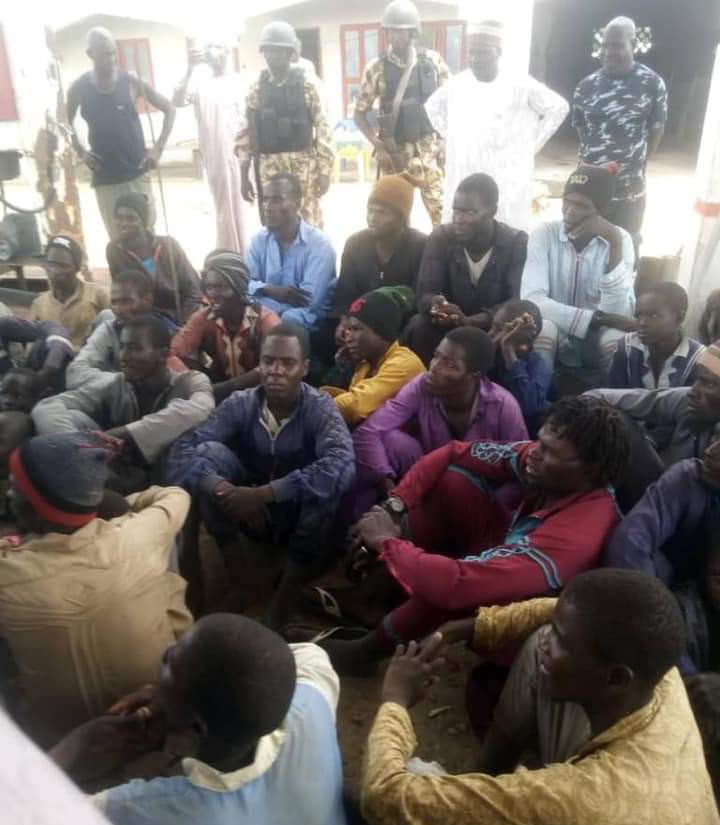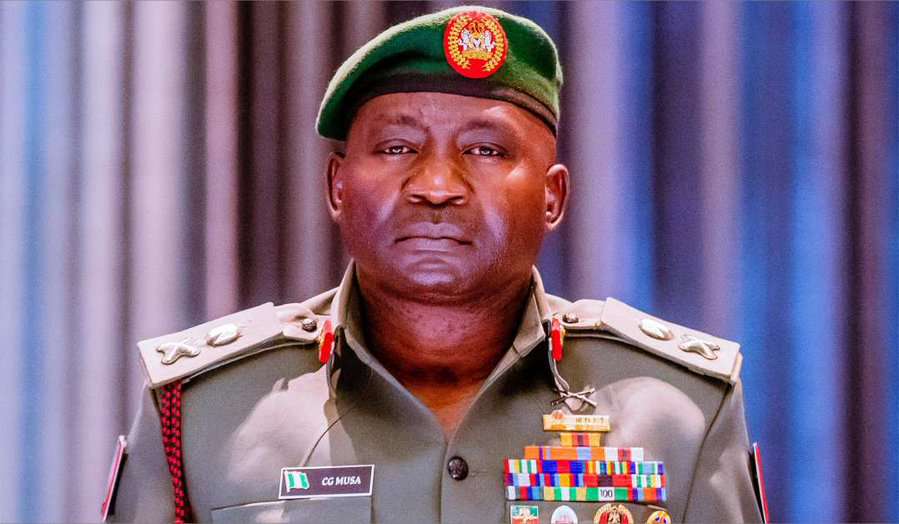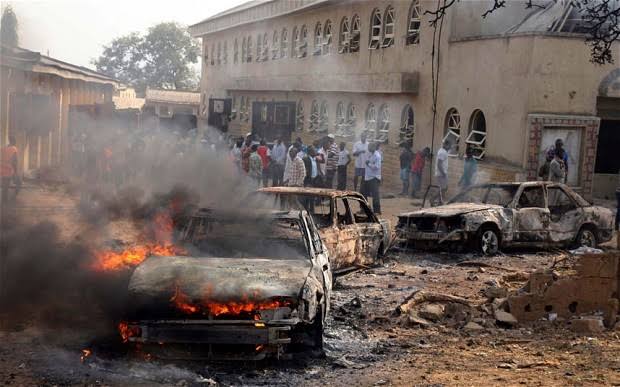Eye on Power
EOP: Nigeria’s unwinnable war

By UCHE CHRIS
This may sound harsh and brutal but nevertheless, it is the bitter truth: Nigeria’s war on insurgency has come to stay. It is a bitter pill and a new normal that we must accept and learn to live with. It is not going anywhere soon. Unfortunately, the government knows it and Nigerians should also be aware of it. Those pinning any hope on its eradication and ultimate victory may be living an illusion.
Some recent developments regarding the war clearly reinforce this conclusion. Since terrorism became a permanent feature and global menace at the dawn of the new millennium, no country plagued with it has been able to rid it completely, simply because it is low intensity warfare that can be dragged on perpetually until the opposition is wearied and capitulates. It is called war of attrition, guerrilla or psychological war, but even deadlier than the conventional type, because of its emotional, financial and human costs.
The attack on Governor Zulum’s convoy in Gwoza is a clear indication that this war is far from being won contrary to the daily picture being painted by the military of the big successes being recorded from air strikes. Even the governor’s allegation that the attack was sabotage perpetrated by the military provides serious warning of deep suspicions, nay, division, and competing interests in government. Such allegation of sabotage is not new; former president Jonathan also had occasion to lament of fifth columnists in his government.
But beyond this, as daunting a problem as it is, Nigeria has been lying to itself about the war, especially since the coming of this government. In a bid to sustain and bolster its image and commitment to winning the war, which ranked high in its electoral mandate, President Buhari has been issuing largely empty, ineffective and basically unachievable orders to the military with very little positive outcomes. In this war Nigeria is on the back-foot and the initiative is no longer with it.
One can only sympathise with people like Senator Ali Ndume, who is not only from the war theater in Borno state, but also the chairman of senate committee on the Armed Forces. It may be very painful for anyone to lose his ancestral home to armed invaders in a country that prides itself as the giant of Africa; but his hope and confidence in the provision of better equipment and more motivation for the troops as condition precedent to victory over the insurgents is futile.
Regrettably, one does share such misplaced optimism. While the provision of the appropriate arms and incentives are critical, what about the strategy and unity of purpose? Simply put, our strategy and tactics are asymmetrical to the war situation. This is not a war for the conventional troops; it is for the Special Forces trained in covert operations to challenge the enemy in their own game. It is not a war of battle-array or air strikes because they enemy is not specific and easily identifiable, and hiding in the bush. The U.S., world’s greatest military power, learned this bitter lesson the hard way in Vietnam, Somalia, Iraq, and ongoing in Afghanistan.
We cannot also win the war from the air, which really makes nonsensical the current focus on air strikes; it is laughable to even a layman like me. It is on the ground that they can be taken out and you have to have booths on the ground. Air strikes are only useful in cities where their infrastructure can be easily targeted; they are moving targets in the bush. Look at the way the Chadians flushed them out in a jiffy, because, first, they are a guerrilla army and know the strategy; and second, they are very united and committed to their cause, which cannot be said of Nigeria.
Furthermore, the economy can no longer sustain the level of funding required and being suggested by some like Ndume, to prosecute the war. So it is wishful expectation to couch our hope of victory on adequate funding. It is not likely to happen given the looting going on in government and the bad shape of the economy. Honest truth is that the war has become a cash cow for various vested interests and its perpetuation is a source of personal gain. This is not unique to Nigeria, but the lesson of every war, especially protracted ones, now aggravated by the corruption culture in the country.
So, it is overly optimistic to envision the war ending with the snap of the finger. Tragically it is not going to be so and it is obvious that its futility is hitting home. Again, the growing involvement of outside or international terror groups, such as ISWAP and more recently Al Qaeda, has further complicated the situation because these are more radicalised, more war-tested and technically more sophisticated and advanced than the rag-tag group that first started the insurgency. This involvement further complicates and compounds the possibility of a positive outcome for the country.
The open flow of arms and military hardware from the war torn Libya to the insurgents in West Africa, especially Nigeria and Mali, is sufficient incentive to perpetuate the insurgency, as it takes more time and cost for government to procure similar equipment since they have to go through official channels. Wars are fought with arms and the side that has the advantage of more access and better hardware has greater chance of prevailing; such is the lessons of history. So their superiority and availability of arms will ensure that they continue to fight.
Again, the strident and persistent calls for re-jigging of the military leadership is either simplistic, myopic or infantile; it simply misses the point and to see very reasonable people join the chorus says much about the quality of those leading the nation. Of course, the current leaders have overstayed their usefulness and should be relieved. But not for the purpose of bringing in people who will defeat the insurgents; perish the thought, because it will not happen. They are not trained for it, lack the capacity, unity and motivation to win the battle.
I have met some people involved in this war; this is the fact on the ground. Information from the war zones is highly filtered and censored by the military, so most people are unaware of the true situation. Even the military leaders are frustrated and would prefer to leave but for their commissions.
The ordeal of Gen. Segun Adeniyi, former GOC of 7 Division and Operation Lafia Dole, who is allegedly facing possible court martial for speaking out, testifies to this fact. A General is not sent to battle without being well resourced; it would amount to suicide or at best failure. This is our present predicament with the fight against insurgency.
Sadly, the next phase of the war should be containment, not offensive; we should open negotiation with them. It might even come to ceding territory to them for now; otherwise the insecurity in the Northwest will likely persist, because it is a derivative of it. This war for now is unwinnable and we should be man enough to tell ourselves the bitter truth and accept the inevitable, instead of continuing to waste lives and resources in what is unrealizable.









